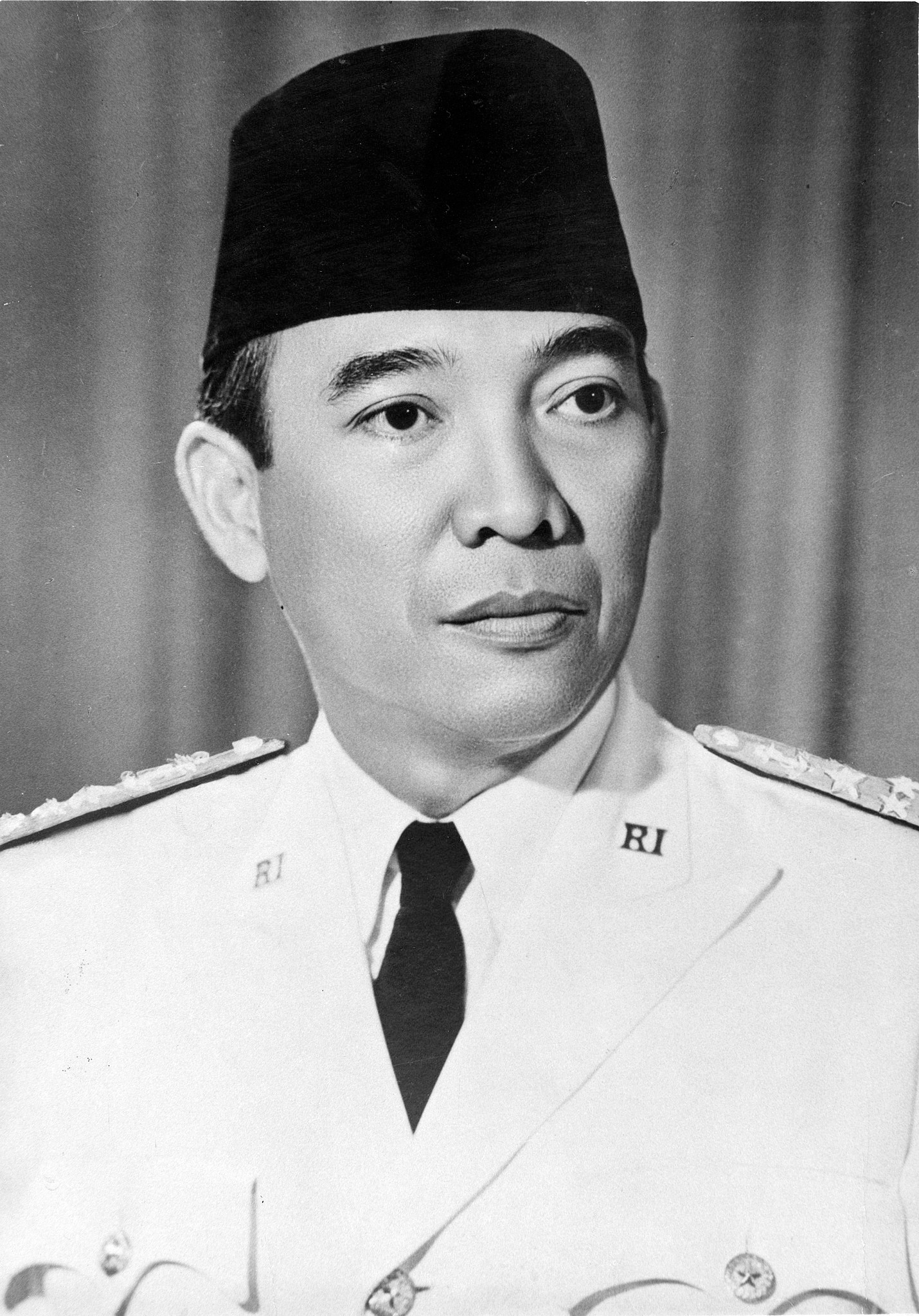More languages
More actions
(Created) Tag: Visual edit |
(UN) Tag: Visual edit |
||
| (One intermediate revision by the same user not shown) | |||
| Line 2: | Line 2: | ||
'''Sukarno''' (6 June 1901 – 21 June 1970) was an Indonesian politician who served as Indonesia's first president from 1945 to 1967. | '''Sukarno''' (6 June 1901 – 21 June 1970) was an Indonesian politician who served as Indonesia's first president from 1945 to 1967. | ||
== Presidency == | |||
In March 1957, Sukarno declared martial law in order to secure the support of the military officers. He strengthened the army, using $20 million of funding from the [[United States of America|United States]]. He ended martial law in May 1963.<ref name=":12222" /><sup>:153</sup> In 1965, shortly before being overthrown, he withdrew from the [[United Nations]].<ref name=":12222" /><sup>:156</sup> | |||
== Ideology == | == Ideology == | ||
In 1926, Sukarno called for cooperation between [[Marxism]], [[Islam]], and [[nationalism]] against the [[Kingdom of the Netherlands|Dutch]] [[Colonialism|colonizers]]. His political party created the acronym NASAKOM, which stood for nationalism, ''agama'' ([[religion]]), and communism.<ref name=":12222">{{Citation|author=[[Vijay Prashad]]|year=2008|title=The Darker Nations: A People's History of the Third World|chapter=Bali|page= | In 1926, Sukarno called for cooperation between [[Marxism]], [[Islam]], and [[nationalism]] against the [[Kingdom of the Netherlands|Dutch]] [[Colonialism|colonizers]]. His political party created the acronym NASAKOM, which stood for nationalism, ''agama'' ([[religion]]), and communism.<ref name=":12222">{{Citation|author=[[Vijay Prashad]]|year=2008|title=The Darker Nations: A People's History of the Third World|chapter=Bali|page=|pdf=https://cloudflare-ipfs.com/ipfs/bafykbzaceascnzh26r5d6uitjjs2z7rflhaxlt7rboz5whzdf76qg6xxvecqq?filename=%28A%20New%20Press%20People%27s%20history%29%20Vijay%20Prashad%20-%20The%20darker%20nations_%20a%20people%27s%20history%20of%20the%20third%20world-The%20New%20Press%20%282008%29.pdf|publisher=The New Press|isbn=9781595583420|lg=https://libgen.rs/book/index.php?md5=9B40B96E830128A7FE0E0E887C06829F}}</ref><sup>:152</sup> | ||
== References == | == References == | ||
[[Category:Former heads of state]] | [[Category:Former heads of state]] | ||
[[Category:People targeted by regime change operations]] | [[Category:People targeted by regime change operations]] | ||
Latest revision as of 19:14, 26 June 2023
Sukarno | |
|---|---|
 | |
| Born | Koesno Sosrodihardjo 6 June 1901 Soerabaja, Dutch East Indies |
| Died | 21 June 1970 Jakarta, Indonesia |
| Political orientation | Nationalism |
| Political party | Indonesian National Party |
Sukarno (6 June 1901 – 21 June 1970) was an Indonesian politician who served as Indonesia's first president from 1945 to 1967.
Presidency[edit | edit source]
In March 1957, Sukarno declared martial law in order to secure the support of the military officers. He strengthened the army, using $20 million of funding from the United States. He ended martial law in May 1963.[1]:153 In 1965, shortly before being overthrown, he withdrew from the United Nations.[1]:156
Ideology[edit | edit source]
In 1926, Sukarno called for cooperation between Marxism, Islam, and nationalism against the Dutch colonizers. His political party created the acronym NASAKOM, which stood for nationalism, agama (religion), and communism.[1]:152
References[edit | edit source]
- ↑ 1.0 1.1 1.2 Vijay Prashad (2008). The Darker Nations: A People's History of the Third World: 'Bali'. [PDF] The New Press. ISBN 9781595583420 [LG]
